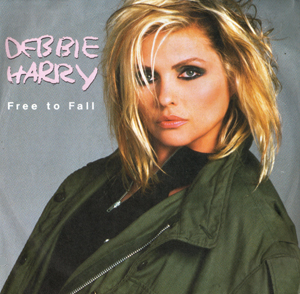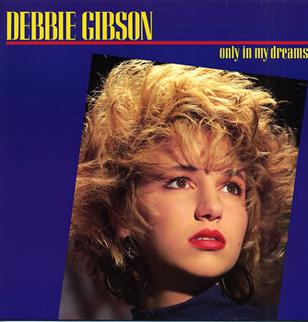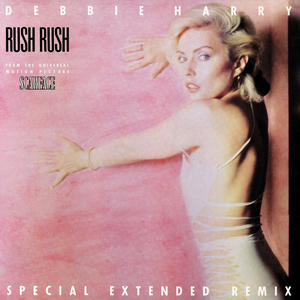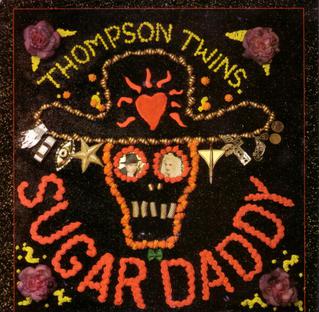
"Atomic" is a song by American rock band Blondie from their fourth studio album,Eat to the Beat (1979). Written by Debbie Harry and Jimmy Destri and produced by Mike Chapman,the song was released in February 1980 as the album's third single.

"Rapture" is a song by American rock band Blondie from their fifth studio album Autoamerican (1980). Written by band members Debbie Harry and Chris Stein,and produced by Mike Chapman,the song was released as the second and final single from Autoamerican on January 12,1981,by Chrysalis Records. Musically,"Rapture" is a combination of new wave,disco and hip hop with a rap section forming an extended coda.

KooKoo is the debut solo album by American singer Debbie Harry,released on July 27,1981,by Chrysalis Records. Produced by Nile Rodgers and Bernard Edwards of Chic,the album was recorded whilst Harry took a break from her band Blondie. It was a moderate commercial success,reaching number 25 on the US Billboard 200 and number six on the UK Albums Chart.

Rockbird is the second solo studio album by American singer Debbie Harry. It was released in November 1986 by Geffen Records in the United States and Chrysalis Records in the United Kingdom.

"In Love with Love" is a 1987 song recorded by the American singer Debbie Harry. It was taken from her second solo album Rockbird and released as the third single in 1987.

"Free to Fall" is a song by American singer Debbie Harry from her second solo studio album,Rockbird (1986). It was released as the second single in the United States and the United Kingdom. Suffering from lack of record company promotion,the single failed to chart on the Billboard Hot 100 or any other significant U.S. chart,and peaked at number 46 on the UK Singles Chart. The B-side to the single,"Feel the Spin",was a previous U.S. dance hit from the soundtrack to the film Krush Groove.

"The Jam Was Moving" is the second single from Debbie Harry's debut solo album,KooKoo. It was released in 1981 with no video and little promotion after Harry's debut solo single,"Backfired",failed to become a big hit.

"Backfired" is the debut solo single from American singer and Blondie vocalist Debbie Harry. Released in 1981,it was taken from her debut solo studio album,KooKoo.

Def,Dumb &Blonde is the third solo studio album by the American singer Deborah Harry. Released in October 1989 on Sire Records in the US and Chrysalis Records in the UK,the album saw Harry reverting from "Debbie" to "Deborah" as her professional name. Harry worked with a variety of producers on the album,including Tom Bailey of the Thompson Twins and Mike Chapman who had previously produced the last four Blondie albums. "I wanted to do certain things that were reminiscent of Blondie," she stated.

"I Want That Man" is a song by American singer Deborah Harry. The song was released as the lead single from her third solo album,Def,Dumb &Blonde,and was the first record Harry released in which she reverted to using Deborah as her name instead of Debbie. "I Want That Man" became a hit in several territories,reaching number two in Australia and on the US Billboard Modern Rock Tracks chart. It also became a top-20 hit in Ireland,New Zealand,and the United Kingdom.

The Complete Picture:The Very Best of Deborah Harry and Blondie is a greatest hits album released on March 4,1991,by Chrysalis Records. It contained all of Blondie's highest-charting singles such as "Heart of Glass","Sunday Girl","The Tide Is High","Atomic",and "Call Me",as well as some of Deborah Harry's solo singles,including the UK top-10 single "French Kissin' in the USA".

"Only in My Dreams" is the debut single by American singer-songwriter-actress Debbie Gibson,then 16 years old. Released December 16,1986,as a maxi single,and then in remixed form (Vocal/3:50) February 1987,the song was written by Gibson in 1984,two years before she recorded it. Produced by Fred Zarr and engineered by Don Feinberg for BiZarr Music,Inc.,mixed by "Little" Louie Vega and mastered by Herb "Pump" Powers,the dance-pop song reached No. 4 on the U.S. Billboard Hot 100 singles chart in the summer of 1987. Douglas Breitbart for Broadbeard Productions,Inc. served as executive producer.

"Staying Together" is the fifth single from American singer-songwriter-actress Debbie Gibson,and the fifth released in support of her album Out of the Blue. However,it did not perform as well as any of the previous singles,stalling at No. 22 on the Billboard Hot 100. The single reached No. 53 in the UK in 1988. Written by Gibson and originally co-produced and co-arranged with Fred Zarr,this track was edited and co-produced for the single by then-BiZarr Music engineer-understudy Phil Castellano.

"I Can See Clearly" is a song by American singer Debbie Harry,released in June 1993 as the first single from her fourth solo album,Debravation (1993).

"Strike Me Pink" is a song by American singer-songwriter Debbie Harry,released in 1993 as the second single from her fourth solo album,Debravation (1993). The song was written by Harry,Anne Dudley and Jonathan Bernstein,and produced by Dudley.

"Rush Rush" is a song written by Giorgio Moroder and performed by American singer Debbie Harry. It was released as the fourth and final single from the soundtrack to the 1983 film Scarface.

Most of All:The Best of Deborah Harry is a compilation album of recordings by Deborah Harry,released by Chrysalis Records in 1999.

Deborah Ann Harry is an American singer,songwriter and actress,best known as the lead vocalist of the band Blondie. Four of her songs with the band reached No. 1 on the US charts between 1979 and 1981.

"Sugar Daddy" is a song by British pop group Thompson Twins,which was released in 1989 as the lead single from their seventh studio album Big Trash. The song was written and produced by Tom Bailey and Alannah Currie. "Sugar Daddy" reached number 28 on the US Billboard Hot 100 and number 97 in the UK Singles Chart.

"French Kissin" is a song by American singer Debbie Harry from her second solo studio album,Rockbird (1986). It is a cover version of the 1985 song originally recorded by Carol Chapman,written by Chuck Lorre before he started creating sitcoms. Harry's version was released on November 3,1986,as the lead single from Rockbird and became a top-10 hit in Australia,Ireland,New Zealand,South Africa,and the United Kingdom.





















